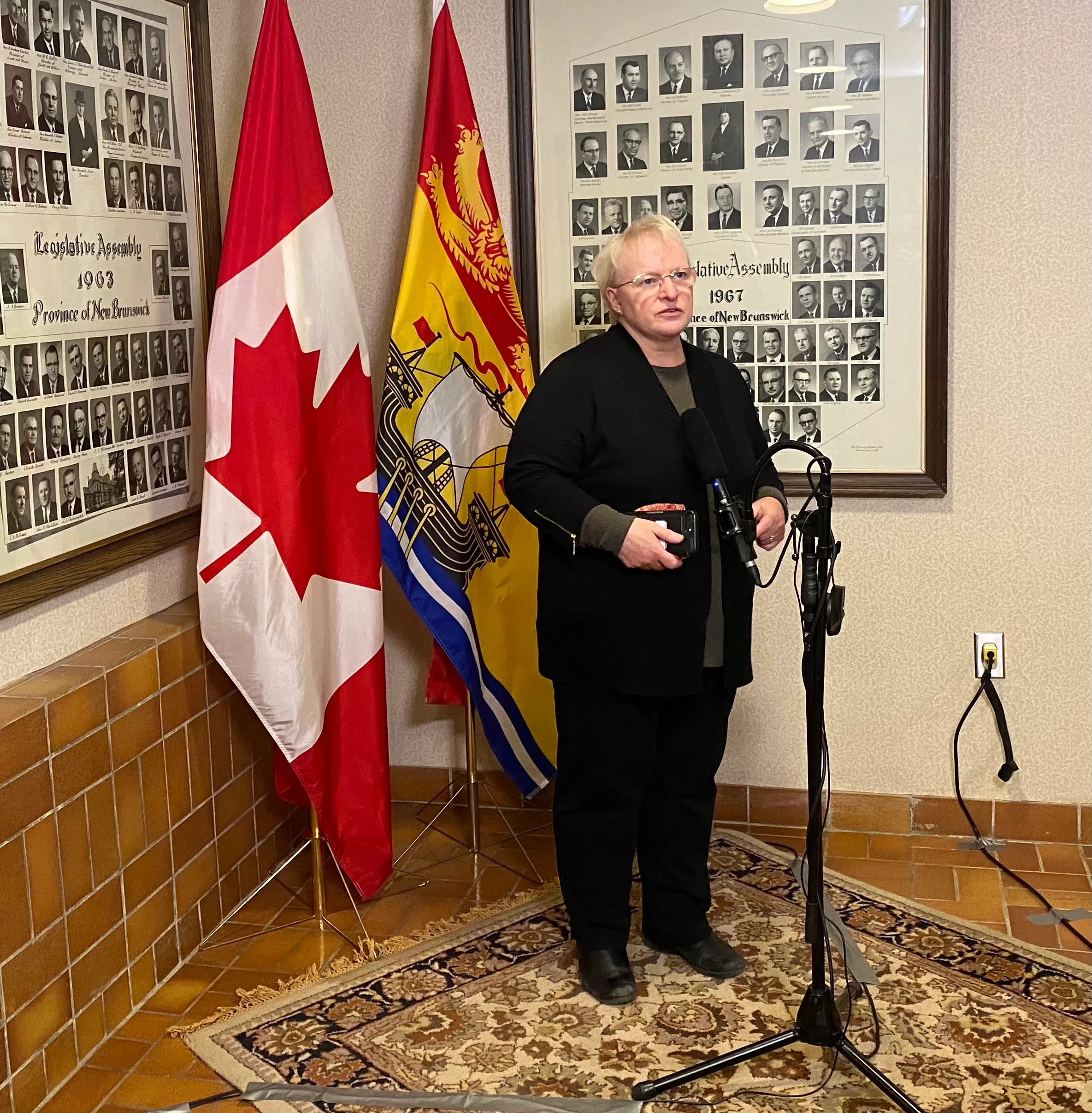
Health Minister Dorothy Shephard said her priorities will be to work on crisis and near-crisis mental health services. (Photo: Stephanie Sirois)
There are plenty of questions for the government about the new budget especially in terms of the nearly $7 million invested in mental health initiatives across different departments.
Addiction and mental health services will receive $3 million as well as $539,000 for the Canadian Mental Health Association BounceBack Program which is intended to support adults and youth 15 years old with depression, anxiety, stress and worry.
Another $350,000 is directed to support recommendations from the Psychologists’ Resource Strategy for critical shortages in the mental health services sector including “shortages of psychologists in schools, within community mental health teams, and in hospitals.”
Health Minister Dorothy Shephard said they have aggressive timelines to work with and that required an intergovernmental approach.
“We cannot approach mental health by one department. It couldn’t be social development, it couldn’t be health, it couldn’t be education, it couldn’t just be public safety or aboriginal affairs, it needs to all be tackled together,” she said.
Shephard said the intergovernmental approach began when she “joined the mental health table” in 2018-2019 to create a five-year action plan.
“Because I believe one of the points we really need to nail down is crisis care and near-crisis care. So by the end of this month, I’m going to have options from the regional health authorities, I’m going to have staff that have done work on that as well, I’m going to take it to some stakeholders and then we’re going to have some announcements by mid-April,” she said.
Shephard said she doesn’t think anyone in the province would disagree that they don’t do mental health really well in the ER.
“I think there’s time for us to really take a look at that and decide how can we better improve the care that we have when that care is needed immediately but also it’s that follow-up care where people are waiting six months or a year to get in to [see] a psychiatrist,” she said.
Shephard said she doesn’t believe the province is meeting the day-to-day and week-to-week mental health needs of residents and she wants to work on that including how to implement over 400 licensed counselling therapists within the province.
The newsroom asked if affordable therapy or counselling for residents would be provided to ensure they wouldn’t be paying out of pocket for those longer-term services past the crisis or near-crisis points.
Shephard said therapy and counselling services do need to be provided no matter what time frame and that crisis and near-crisis was her priority but did not clarify if those would also be worked on.
She said she wants to make a difference in how the province delivers mental health to its residents.






